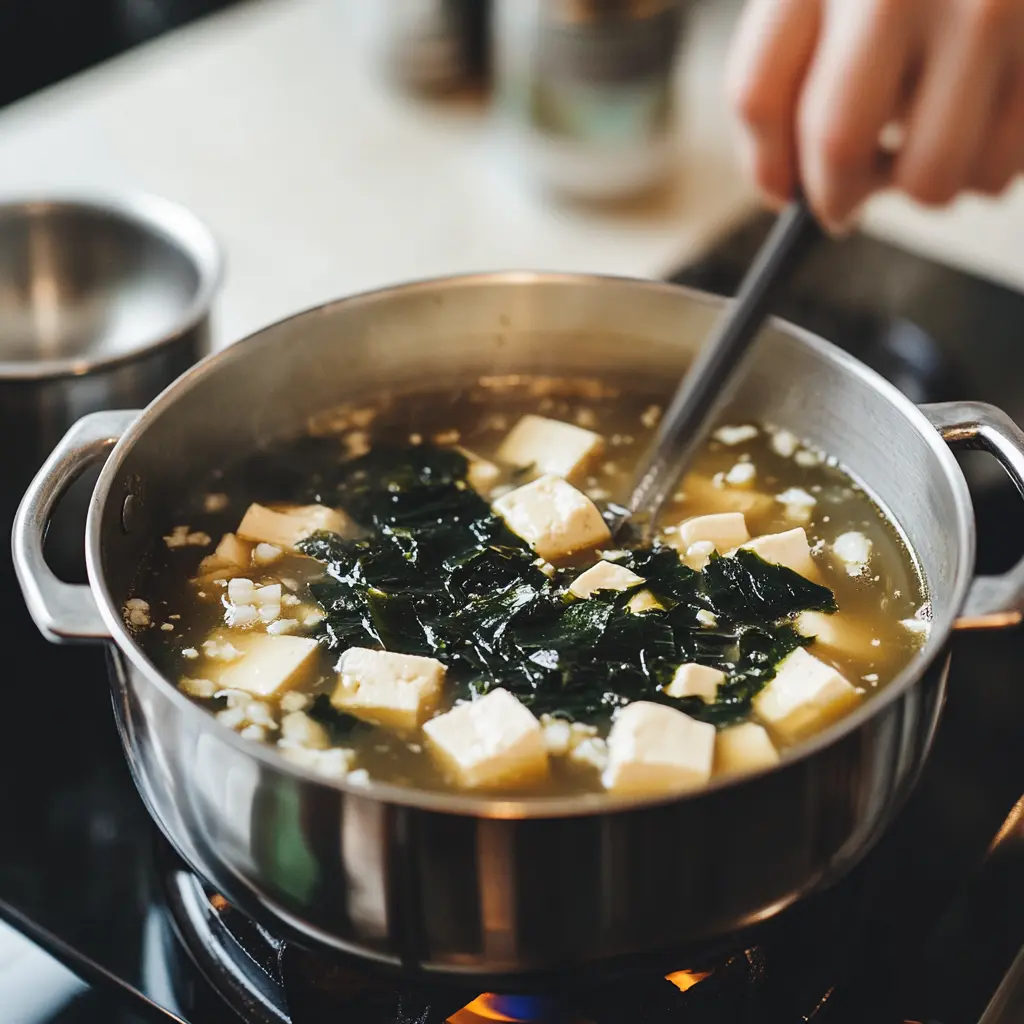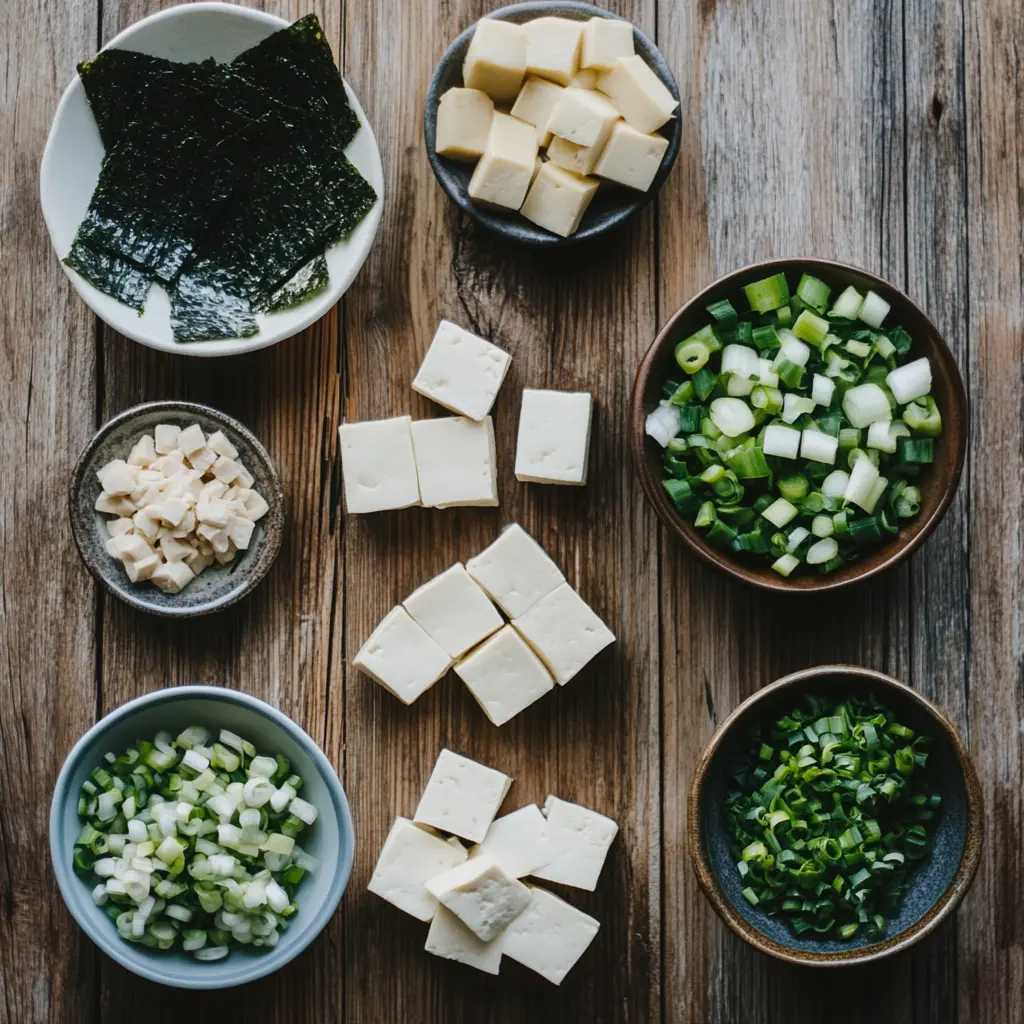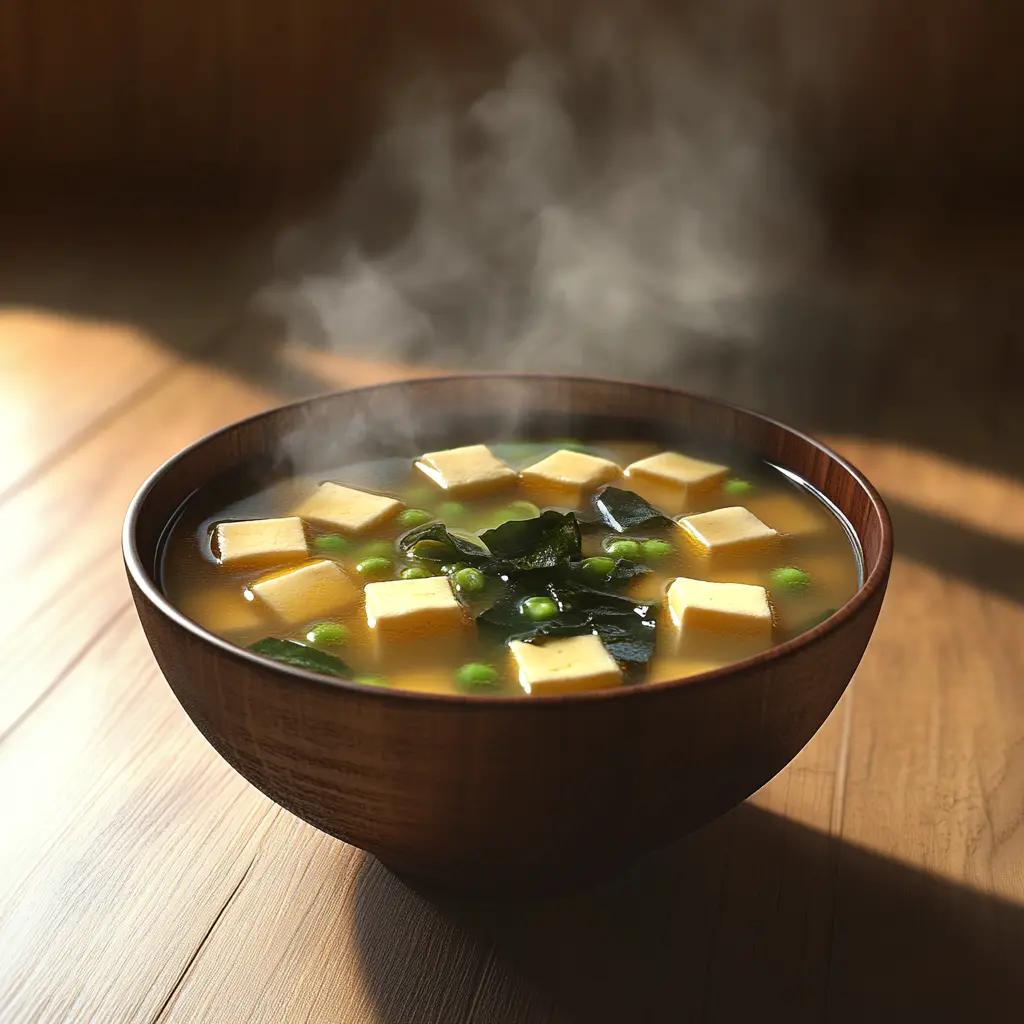Miso soup is a traditional Japanese dish that has gained popularity worldwide for its comforting taste and numerous health benefits. While it is often enjoyed as a starter or side dish, it is essential to understand its nutritional value, especially when it comes to miso soup calories. Whether you are mindful of your calorie intake or looking to explore healthier meal options, this article will provide an in-depth look at miso soup calories and how this dish can fit into your diet.
Table of Contents
What is Miso Soup Calories?
Miso soup is a flavorful broth made primarily from miso paste, which is fermented soybean paste. The paste is typically combined with a stock known as dashi (made from seaweed and fish), along with various ingredients like tofu, seaweed, and green onions. This Japanese delicacy is known for its rich umami flavor, which makes it both a comforting and nourishing choice.
Traditional Ingredients
Miso soup’s base is simple, but the ingredients can vary depending on the recipe. Common additions include:
- Miso Paste: This is the key ingredient that defines the soup’s flavor. It can range from white (milder) to red (more robust).
- Dashi: A broth made from seaweed and fish, often used as the soup base.
- Tofu: Soft tofu is frequently added to provide a source of plant-based protein.
- Seaweed: Wakame, a type of edible seaweed, is commonly used to enhance the flavor and texture.
- Green Onions: These are used for garnish and add a touch of freshness.
Miso Soup Calories Overview
The calorie count in miso soup can vary greatly depending on the ingredients used and the portion size. However, as a general guideline, a typical serving of miso soup made with miso paste, dashi, tofu, and seaweed can range from 40 to 80 calories per cup (about 240 ml).
How Miso Soup Calories Vary by Ingredients
- Miso Paste: The paste itself is relatively low in calories, with around 30-40 calories per tablespoon. However, the quantity used can influence the final calorie count.
- Tofu: Tofu contributes a small amount of protein, adding around 10-20 calories per 1/4 cup.
- Seaweed: Seaweed is very low in calories and provides essential minerals like iodine.
- Dashi: Typically, dashi contributes minimal calories, but it depends on whether it’s homemade or store-bought, as the latter may contain added sugars or preservatives.
Health Benefits of Miso Soup
Miso soup is not just a low-calorie option; it also offers several health benefits that make it a great addition to any diet.
Is Miso Soup Healthy?
Yes, miso soup is quite healthy. It’s made from fermented soybeans, which provide probiotics that help improve gut health. The soup also contains a variety of vitamins and minerals, such as:
- Vitamin K: Essential for bone health.
- Iron: Supports the immune system and helps in energy production.
- Magnesium: Helps with muscle and nerve function.
The Nutritional Value of Miso Soup
Miso soup provides a good source of antioxidants, which help combat oxidative stress in the body. Additionally, it is rich in fiber from the seaweed and tofu, promoting digestive health and feeling full longer.
Miso Soup for Weight Loss and Metabolism
For those looking to lose weight or boost metabolism, miso soup is an excellent choice. It’s low in calories but high in nutrients, making it a filling and nutritious option without the excess calories. Furthermore, the soy protein in miso paste may help support lean muscle mass, which can aid in fat burning.
How Miso Soup Affects Weight Loss
If you are on a weight loss journey, incorporating miso soup calories into your diet can help keep you satisfied while maintaining a calorie deficit.
Low-Calorie Soup Options
Miso soup is inherently low in calories. With only 40-80 calories per serving, it is an excellent choice for those looking for a low-calorie meal or snack.
Is Miso Soup a Good Choice for a Low-Calorie Diet?
Absolutely. Due to its low calorie content, miso soup can be easily included in a low-calorie diet without feeling deprived. It also helps prevent over-snacking by keeping hunger at bay, especially if you enjoy it as a pre-meal appetizer.
How Miso Soup Helps in Healthy Weight Management
The combination of protein from tofu and the satiating effects of miso paste makes miso soup a perfect meal for weight management. It fills you up, provides essential nutrients, and keeps your calorie intake in check.
How to Make Low-Calorie Miso Soup
Making your own miso soup at home allows you to control the ingredients and portion sizes, which can help reduce the calorie content.
Ingredients for Low-Calorie Miso Soup
To make a low-calorie version of miso soup, use the following ingredients:
- Light Miso Paste: Opt for a reduced-sodium, lighter version of miso paste to cut down on calories and sodium.
- Tofu: Use a small amount of tofu for protein without adding excess calories.
- Low-Sodium Dashi: Choose or make a low-sodium dashi to further reduce the soup’s overall calorie and sodium content.
- Seaweed and Vegetables: These ingredients add bulk without many calories.
Step-by-Step Guide to Making Miso Soup with Fewer Calories

- Prepare the dashi: Simmer water with kombu (seaweed) and bonito flakes to make a low-sodium dashi broth.
- Add miso paste: Stir in a small amount of light miso paste, adjusting to taste.
- Incorporate tofu and vegetables: Add soft tofu cubes and seaweed. You can also include additional vegetables like mushrooms or spinach for extra nutrients without adding many calories.
- Serve hot: Ladle the soup into bowls and enjoy a healthy, low-calorie meal.
Comparing Miso Soup Calories to Other Soups
Miso soup is often compared to other popular soups like chicken or vegetable soup. Understanding how miso soup calories compare to other options can help you make healthier choices.
Chicken Soup Calories
- A cup of chicken soup can have around 150-200 calories, depending on the ingredients. Miso soup, in comparison, is significantly lower in calories, making it a better choice for weight-conscious individuals.
Vegetable Soup Calories
- While vegetable soups are also generally low in calories, the addition of miso paste in miso soup provides a savory umami flavor and additional health benefits, making it a more flavorful and nutrient-dense option.
Miso Soup as Part of a Balanced Diet
Including miso soup in your daily meals can contribute to a well-rounded, balanced diet. Its nutritional content makes it an ideal option for anyone looking to add more variety to their meals.
Incorporating Miso Soup into Your Daily Diet
Miso soup is an excellent way to get a serving of vegetables, protein, and beneficial probiotics. Including it in your diet regularly can help boost your overall nutrient intake without adding excessive calories.
Miso Soup and Other Foods for Weight Loss
Pair miso soup with lean proteins, like grilled chicken or fish, and vegetables to create a balanced meal that supports weight loss while satisfying your hunger.
Serving Size and Caloric Control
One serving of miso soup is typically around 1 cup, which contains between 40-80 calories. This makes it easy to control your calorie intake while enjoying the health benefits of miso soup.
Caloric Breakdown of Miso Soup
The calorie content in miso soup depends on several factors, including the type of miso paste used and the size of the serving.
How Calories in Miso Soup are Calculated
Calories in miso soup are calculated based on the individual ingredients. Miso paste contributes the most calories, followed by tofu and seaweed. It’s essential to consider the quantities used in your recipe to estimate the total calorie count accurately.
Breakdown of Calories from Ingredients

- Miso Paste: Around 30-40 calories per tablespoon
- Tofu: 10-20 calories per 1/4 cup
- Seaweed: Negligible calories per serving
- Dashi: Minimal calories
Sodium Content
While miso soup is low in calories, it can sometimes be high in sodium due to the salt content in miso paste and dashi.
Sodium and Its Impact on Health
Excessive sodium intake can lead to high blood pressure and other health issues. It’s important to monitor sodium levels in your diet and consider reducing salt in miso soup to maintain a healthy lifestyle.
How to Make it Lower in Sodium
To reduce the sodium content, use low-sodium miso paste and dashi, or make your own homemade dashi without adding extra salt.
Frequently Asked Questions about Miso Soup Calories
1. Is Miso Soup a Good Choice for a Low-Calorie Meal? Yes, miso soup is an excellent choice for a low-calorie meal, with just 40-80 calories per cup.
2. Can I Lose Weight by Eating Miso Soup Regularly? Incorporating miso soup into a balanced diet can support weight loss due to its low calorie content and high nutritional value.
3. Does Miso Soup Have a Lot of Sugar? No, miso soup is generally low in sugar, especially if you make it at home with minimal added sweeteners.
4. Is Miso Soup High in Protein? While miso soup contains some protein from tofu and miso paste, it is not a significant source of protein. You can pair it with other protein-rich foods for a balanced meal.
5. How Many Calories are in a Cup of Miso Soup? A standard serving of miso soup (1 cup) typically contains between 40 and 80 calories, depending on the ingredients used.
6. Is Miso Soup Good for Digestion? Yes, miso soup contains probiotics from the fermented miso paste, which can promote healthy digestion.
Looking for more delicious soup ideas? Try our new White Bean Tuscan – a perfect addition to your collection of hearty and comforting soups
Conclusion: Is Good for Your Diet?
In conclusion, miso soup calories are low, making it a great option for anyone looking to maintain a healthy, balanced diet. It’s nutritious, comforting, and easy to prepare, making it an ideal addition to your meals. Whether you are looking to lose weight, improve gut health, or simply enjoy a flavorful, low-calorie dish, miso soup offers numerous benefits without the excess calories.

